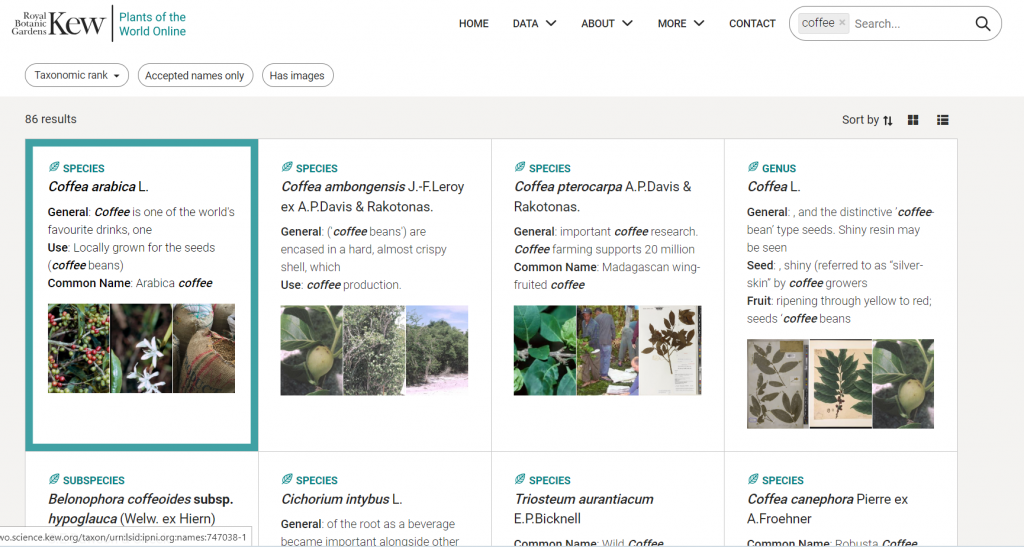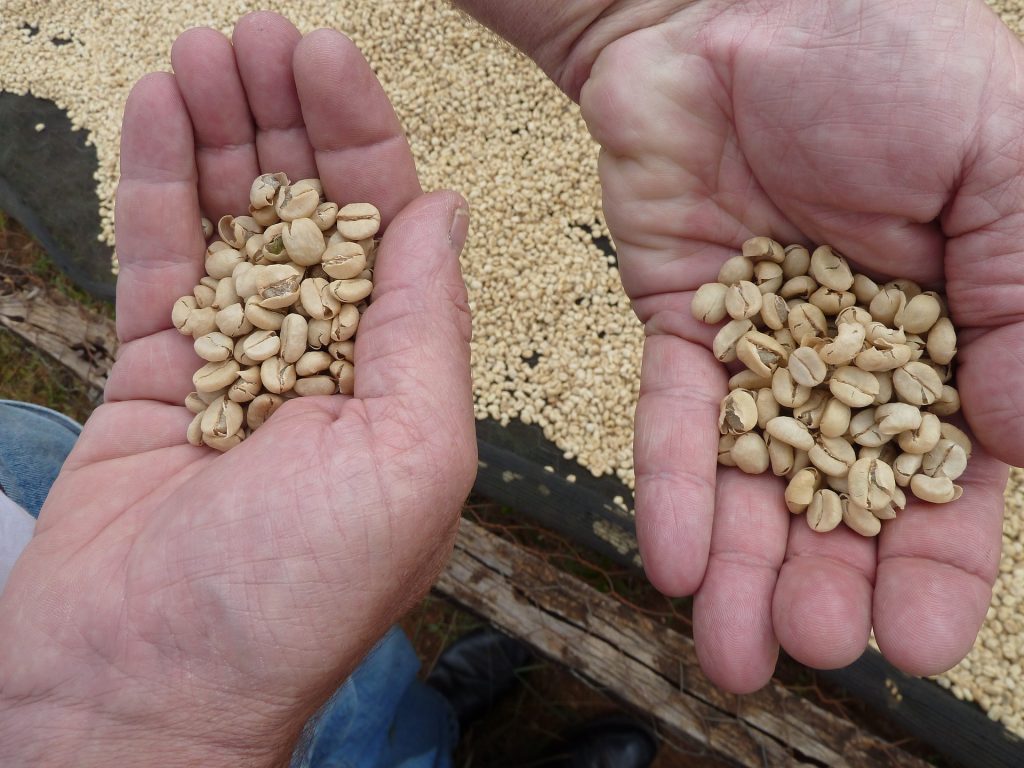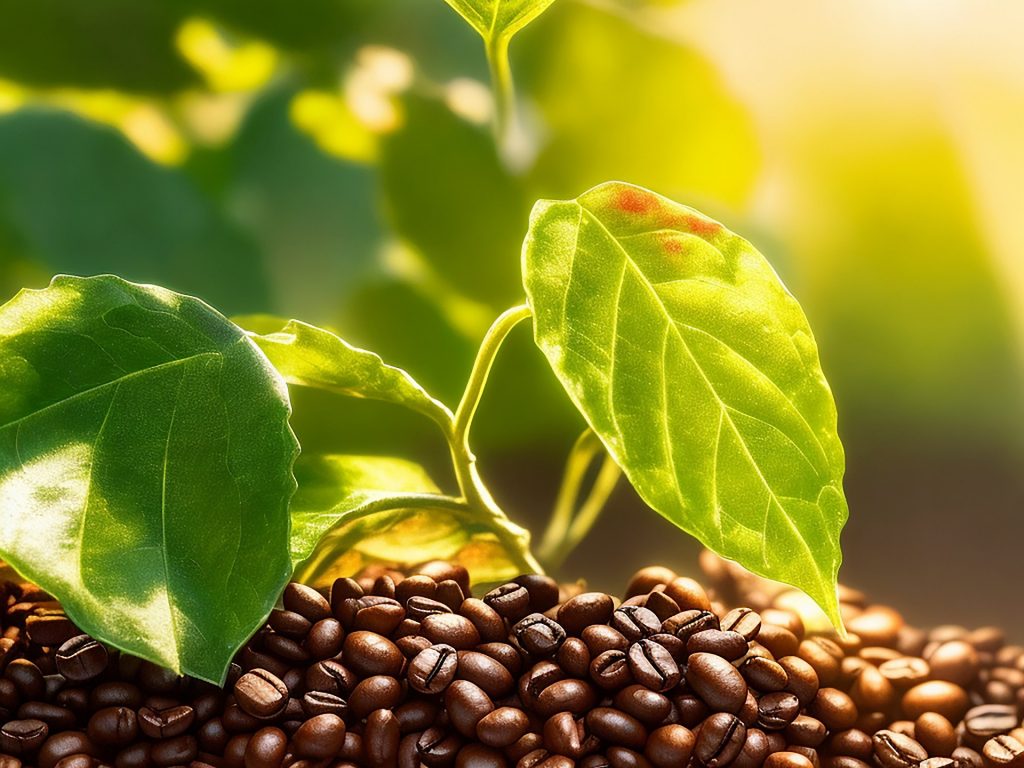“The best day to plant a tree was yesterday.” How true that saying is for coffee producers who must wait years for their trees to yield their first crop of cherries. But what if you could have known “yesterday” what variety of coffee tree would thrive in today’s weather conditions? What if you had known “yesterday” which tree would produce the most fruit today based on where it had been planted in your field? What if you knew “yesterday” what market demand would be today or tomorrow? In other words… how do you know what you are looking for if you haven’t found it yet?
Just shy of being a crystal ball, Artificial Intelligence (AI) provides a type of reverse engineering that crosses time and space. It excels in juggling a very large number of variables and making adjustments for them to alter outcomes. What big risks could be eliminated if you could protract from today what the likely weather, soil conditions, and threats of disease might be four years from now? AI is already assisting producers in automation and removal of what is most prone to human errors in judgment.
Let’s glance at how AI is percolating throughout various aspects of coffee production, from cultivation and harvesting to processing, quality control, and customer experience.
I. One aspect is PRECISION AGRICULTURE. AI can assist in optimizing coffee cultivation by analyzing soil data, weather patterns, and plant health. It can provide insights on when to irrigate, fertilize, or apply pest control measures, thereby maximizing crop yield and quality. Current data can lead to additional actions to be implemented today that are based on future predictions for temperature, humidity, pH and rainfall.

[https://tinyurl.com/3axmr776 – Creative Commons License 3.0 attribution]
Such smart agriculture may include robots, drones and sensors that manage and monitor crops and collect crop-related data. These are safe methods of increasing agricultural productivity while reducing environmental impact. This data helps farmers better understand their crops, the genetic strains of their trees, and potential diseases. All of this helps farmers identify wasteful resource consumption patterns and detect soil defects in order to take corrective action sooner rather than later. [https://tinyurl.com/r29r6rkm]
II. AI is also impacting coffee production by way of HARVESTING AND SORTING. AI-powered robots or automated systems can identify and selectively pick ripe coffee cherries, ensuring efficient and accurate harvesting. Machine learning algorithms can be trained to recognize the visual characteristics of mature cherries, reducing labor costs and increasing productivity.
Consider how “multispectral imaging (MSI) technique based on reflectance and autofluorescence” takes “images of the same object… at different wavelengths, followed by a machine learning model to classify beans according to the information gleaned from the images.” [https://tinyurl.com/6u27xpan]

[Public Domain]
III. Let’s not overlook QUALITY ASSESSMENT. Coffee quality control processes are enhanced by machine vision systems that assess the physical attributes of coffee beans; such as size, color, and defects, to ensure consistent quality standards. AI algorithms can also analyze aroma and taste profiles, enabling objective and precise quality evaluation.
But how can AI smell and taste? Take for example the Columbian startup, Demetria, which is betting on its sensory digital fingerprint to match a coffee bean’s profile to the industry standard coffee flavor wheel created in 1995. This new sensory fingerprint for coffee beans will let roaster and producers “assess quality and taste at any stage of the coffee production process.”
When beans can be tested at any time, whether green or roasted, predictions can be made that a green bean isn’t going to make a tasty drink when it’s roasted. This saves excess roasting time and bean testing. Such forecasting enables farmers to make the best growing decisions for next season based on data rather than hunches.
Will AI completely replace current methods and human participation? “If you can control more of the process, you will end up with less defective coffee, which will increase overall availability,” adds Demetria’s CEO, Felipe Ayerbe. “Cuppers play a vital role in the training of the model, and this technology is in no way meant to replace their position in the industry.” The “problem with cupping is that it’s a [..] scarce resource.” When augmenting human functions, and when combined with the whole rest of the coffee chain, traders and roasters can “be more efficient in understanding who is producing the taste, type and quality of coffee they seek.” AI will assist but not replace human beings. [https://tinyurl.com/3axyjj49].
IV. In the areas of PROCESSING OPTIMIZATON AI can optimize coffee processing methods, such as drying and roasting. By monitoring temperature, humidity, and other variables, AI algorithms can fine-tune the process parameters to achieve desired flavor profiles and minimize waste. What’s an example of something currently being done? Researchers at Cornell University remark: “We attempted to develop an AI-based handy mobile application which would not only efficiently predict harvest time, estimate coffee yield and quality, but also inform about plant health… Strikingly, our innovative semi-supervised method… surpassed the supervised method… leading to faster and more accurate annotation. The mobile application we designed based on the developed code, was named CoffeApp, which possesses multiple features of analyzing fruit from the image taken by phone camera with in field and can thus track fruit ripening in real time.” [https://tinyurl.com/4zzer7ck]
“Computer science researchers at the Federal University of Uberlandia, Brazil, are planning to train AI are planning to train AI to recognize a fungus that attacks coffee leaves, resulting in the dreaded Rust Infection. Coffee production can drop by as much as 45% as a result of this disease, and it is very difficult to treat. The proposed robot will be able to use advanced visual receptive fields and machine learning to recognize contaminated leaves and isolate plants in need of treatment.” [https://tinyurl.com/yjh65v4j]

[Public Domain]
V. AI can streamline coffee SUPPLY CHAIN MANAGEMENT by tracking and analyzing various factors, including inventory levels, transportation logistics, and demand patterns. This enables better inventory management, reduces waste, and ensures timely delivery to meet customer demands. Some are convinced that blockchain is the answer since it reduces cost by eliminating third-party intermediaries; improves security by decentralizing computer networks, thereby making them exceedingly difficult to hack; and improves transaction speed by again efficiently removing third-party approval. The main drawback for blockchain implementations is “scalability issues compared to the traditional database, especially facing real-time transaction demand.” [https://tinyurl.com/5n95hb86].
Dimitra, a global AgTech firm, through its Connected Coffee App, is combining blockchain with AI, IoT, satellites, and mobile technology, among others. One of the most painful challenges for coffee farmers, especially smaller ones, is to meet certification and other export requirements. [https://dimitra.io]. AI aids in ensuring sustainable and ethically sourced coffee production and removing pain points. Blockchain technology combined with AI can enable transparent supply chains, allowing consumers to trace the origin of their coffee, verify certifications, and support fair trade practices.
VI. Finally AI-powered systems can analyze CUSTOMER PREFERENCES and provide personalized coffee recommendations. By considering factors such as taste preferences, brewing methods, and regional preferences, AI algorithms can suggest coffee varieties that align with individual tastes, enhancing the customer experience. “By inputting your desired dosage of coffee and creamer or whatever additive you prefer” companies are able to “gather the data (i.e., customers’ buying habits, preferences, patterns, etc.) and look at the numbers to deduce and speculate future trends among consumers. They can now hypothesize what time of the year is most profitable to carry specific varieties in stores, and often, they are correct in their estimations. With such information on hand provided by AI coffee, companies can now adjust the inventory to meet the demand.” [https://tinyurl.com/7xwz26nn]. How important that is if “Demand for coffee could triple by 2050.” [https://tinyurl.com/2p89ma6p]

[Public Domain]
While AI offers significant potential benefits, its implementation should be done carefully, considering ethical considerations, data privacy, and the involvement of human expertise in decision-making processes.
AI is brewing the future. Who will be the first to harness all of these individual components and integrate them into a single platform or within a single tool? Perhaps AI can give us a glimpse into that, too! It has already started brewing tomorrow’s cup.
[Principal of LightSource Information & Research Services, Ltd.]


